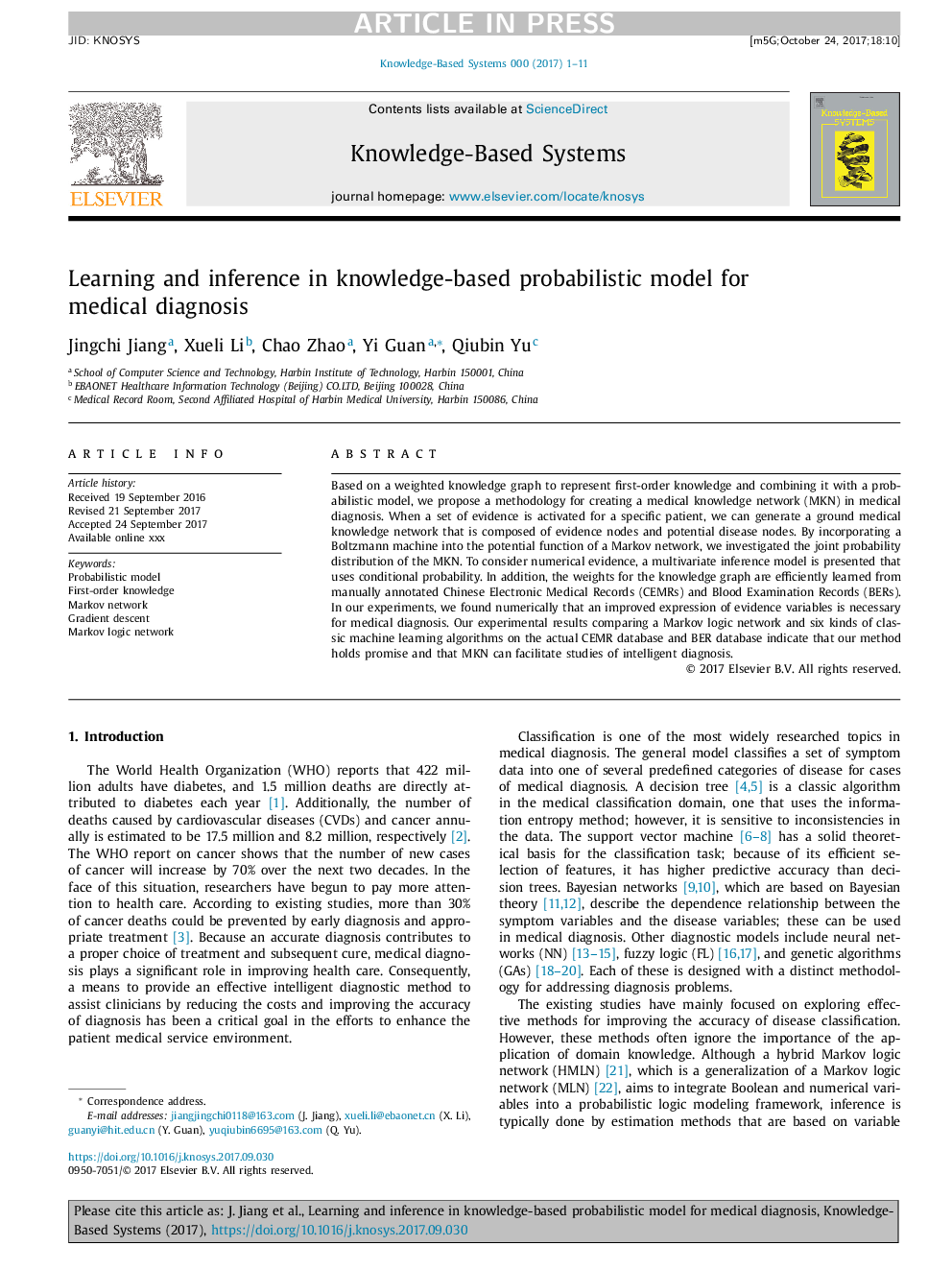| Article ID | Journal | Published Year | Pages | File Type |
|---|---|---|---|---|
| 6862079 | Knowledge-Based Systems | 2017 | 11 Pages |
Abstract
Based on a weighted knowledge graph to represent first-order knowledge and combining it with a probabilistic model, we propose a methodology for creating a medical knowledge network (MKN) in medical diagnosis. When a set of evidence is activated for a specific patient, we can generate a ground medical knowledge network that is composed of evidence nodes and potential disease nodes. By incorporating a Boltzmann machine into the potential function of a Markov network, we investigated the joint probability distribution of the MKN. To consider numerical evidence, a multivariate inference model is presented that uses conditional probability. In addition, the weights for the knowledge graph are efficiently learned from manually annotated Chinese Electronic Medical Records (CEMRs) and Blood Examination Records (BERs). In our experiments, we found numerically that an improved expression of evidence variables is necessary for medical diagnosis. Our experimental results comparing a Markov logic network and six kinds of classic machine learning algorithms on the actual CEMR database and BER database indicate that our method holds promise and that MKN can facilitate studies of intelligent diagnosis.
Related Topics
Physical Sciences and Engineering
Computer Science
Artificial Intelligence
Authors
Jiang Jingchi, Li Xueli, Zhao Chao, Guan Yi, Yu Qiubin,
